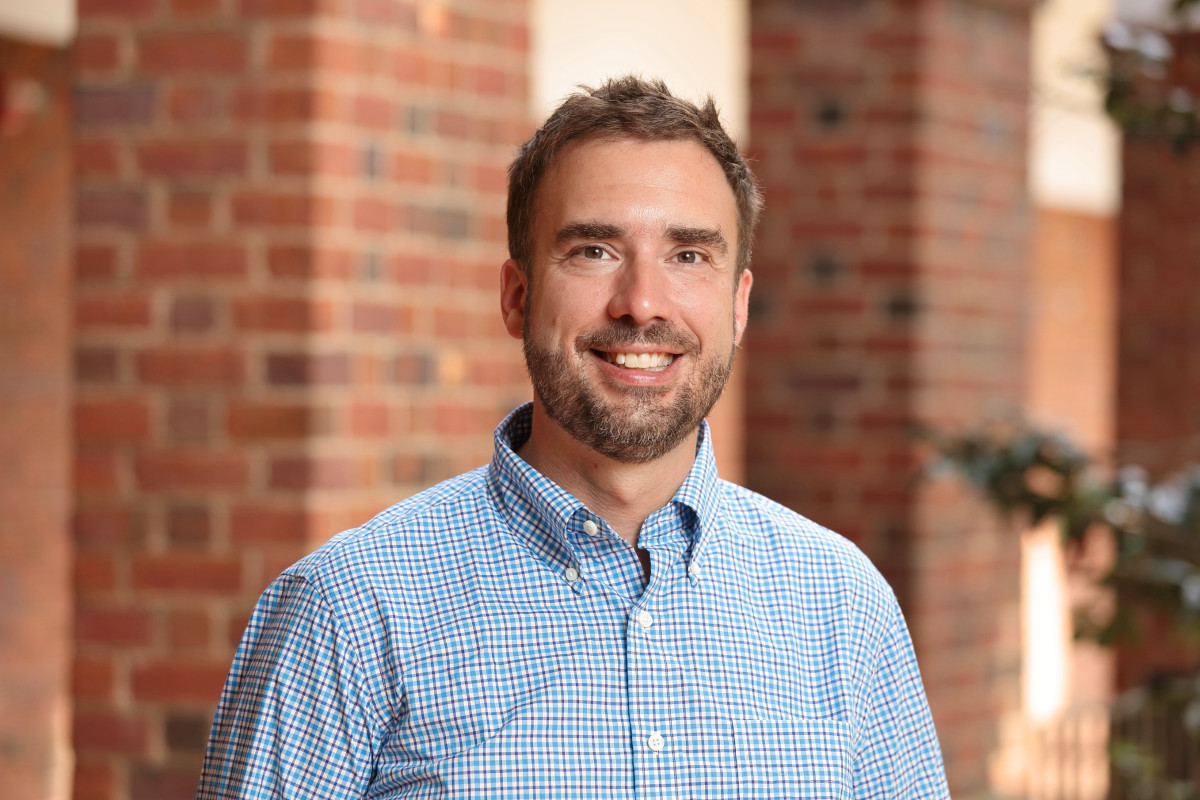With the Help of LVG, This Professor is Making Fruits and Vegetables Safer to Eat
For many company founders who hail from higher education, the difference between working in a lab and in the business world is kind of like the difference between listening to a Frank Sinatra and Marvin Gaye album.
That is to say, academic research and commercialization are two entirely different things.
University of Virginia associate chemical engineering professor Bryan Berger recognized this soon after starting his company, Lytos, in 2018.
“As a founder, you quickly realize there are a lot of critical roles you have to fill that you never thought about before: bookkeeping, human resources, finding customers, managing external partners for manufacturing and figuring out regulatory requirements for registering your product, to name a few,” Berger said.
“You realize the need to find people who have the industry and commercial experience necessary to help you build out your business and develop a successful go-to market strategy.”
Thankfully, Berger – whose goal was to create green, sustainable and safer alternatives to chemical pesticides and disinfectants for farming -- had LVG to turn to.
“LVG helped us early on with assisting in market analysis, business plan development and framing our potential market size for grant applications, such as the Virginia Catalyst that we successfully won,” said Berger, who was recognized as the Charlottesville Business Innovation Council’s Innovator of the Year last month. “LVG wrote a letter of support and provided assistance in the form of market analysis for our successful grant from the state to assist with commercialization.
“LVG also provided patent attorneys and support to discuss our inventions and work with us to make sure our technology was strong from an intellectual property position.”
Today, that technology – which Berger developed in his UVA lab – is of keen interest to companies that produce the agrochemical products that growers use, as well as major growers and producers of specialty agricultural crops, such as wine.
According to Berger, several studies have shown that wine aroma and taste is influenced by pesticides, and pesticides persist in wine at elevated levels. Thus, countries like France are trying to phase out use of pesticides in winemaking because of their toxicity.
“We have done several trials in Virginia with winemakers to show our products are highly effective, and therefore provide a safe alternative to chemicals used in wine grape growing,” Berger said. “We’re excited about our ability to help Virginia winegrowers and others provide better products in terms of quality and safety.”
A wide array of fruits and vegetables, especially strawberries and spinach, which topped this year’s “Dirty Dozen” list – a compilation of the produce that contains the most pesticides – will be significantly safer thanks to Berger’s tech.
“Our products were tested on strawberries and spinach and are highly effective,” Berger said, “so we are going to save those products and many others from the dubious distinction of being on the Dirty Dozen.”
Lytos’ products are made of proteins, which replace chemicals that are used as pesticides in pre- and post-harvest agriculture. Because they are proteins, they biodegrade naturally and are safe, sustainable and organic alternatives to synthetic chemicals -- often derived from petroleum products -- that do not biodegrade rapidly, and therefore persist in the foods we eat, according to Berger.
“Synthetic pesticides often have hazard labels and warnings that require people to wear personal protective equipment when applying them due to their toxicity, and therefore consuming them is also a major problem,” Berger said. “Our products are not toxic and biodegrade, so they are safe for people, plants and pollinators.”
Berger has always cared deeply for the environment, and is driven by a determination to protect it for future generations.
“This means we have to think about ways of food production that are sustainable and safe,” Berger said. “With a projected nine billion people to feed by 2050, this is a major challenge, even more so when we look at the effects of a changing climate on agriculture.
“Two of the major solutions that have been identified are producing more food from existing farms and reducing waste; both are necessary, and both require innovative, sustainable and safe ways of producing food to take care of our planet.”
Berger said chemical pesticide overuse is increasing and putting over 60% of global agricultural land at risk of pesticide pollution, with significant negative health and environmental impacts.
Additionally, Berger said changes in weather patterns and climate are causing more disease pressure on agricultural crops. Some farms, which have operated for over 100 years, are unable to produce wine due to more severe and persistent fungal disease outbreaks.
“Agriculture and food are a major backbone of rural communities and small towns throughout the world,” Berger said. “And so we need to provide solutions that are safe and sustainable to help communities thrive based on agriculture and take care of our planet.
“This is why I focused on bio fungicides and other bio-based products at Lytos and made it our mission to work on better bioprotectants for people, plants and the planet.”
With the help of LVG, Berger is well on his way.
